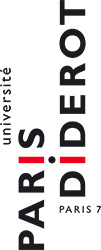Outils pour utilisateurs
Ceci est une ancienne révision du document !
Programme
Claire KRAMSCH
Professor of German and Affiliate Professor of Education at the University of California at Berkeley
APPLIED LINGUISTICS: A THEORY OF THE PRACTICE
Based on my own understanding of Applied Linguistics, I offer a reflection on the field not as the application of linguistic theory or any other theory to the “real-life problem” of language learning and teaching (Brumfit 1997:93, Knapp 2014) but as the practice of language study itself, and the theory that could be drawn from that practice. Similarly to what had oriented Bourdieu towards ethnology (Bourdieu 1990:7), I suggest that what Applied Linguistics offers language practitioners, be they teachers, learners, doctors, lawyers, or media experts, is a theory of their practice. Its object of study is the living process through which living, embodied speakers shape contexts through their grammars and are, in turn, shaped by them (Bateson 1979:18).
This does not mean that applied linguists don’t draw inspiration from theories that have been developed in other fields, such as linguistics, psychology, sociology or anthropology. But these theories are not blueprints for explaining the practice and then proffering recommendations for solving problems in the real world, or even for predicting the success of certain practices over others. Like any research on complex systems, the goal of applied linguistic research is twofold: 1) to observe, explain, analyze and interpret the practice and to communicate the results of its research to practitioners; 2) to reflect on both the practitioner’s and the researcher’s practice and to develop a theory of the practice that is commensurate with its object of study.
My vision for the future of Applied Linguistics focuses on the scientific advances made in the field and their impact on real-world practice, the tension between the technical and the symbolic dimensions of the field, the spread of English around the world, and the increasingly diverse research cultures in Applied Linguistics. I see three main challenges that Applied Linguistics will have to deal with in the coming decades: How to situate Applied Linguistics vis a vis related fields; how to validate the practice all the while that we are theorizing it; how to envisage a multilingual/ multicultural Applied Linguistics.

